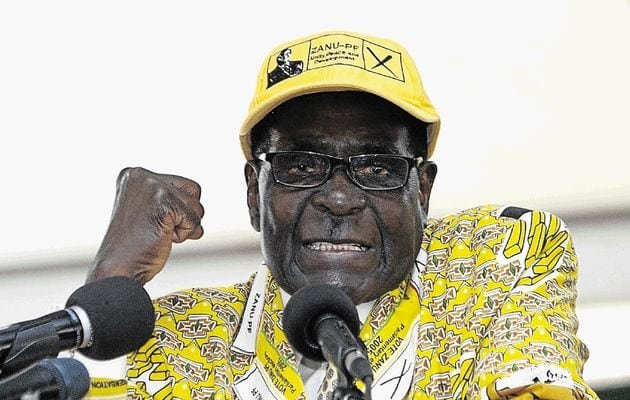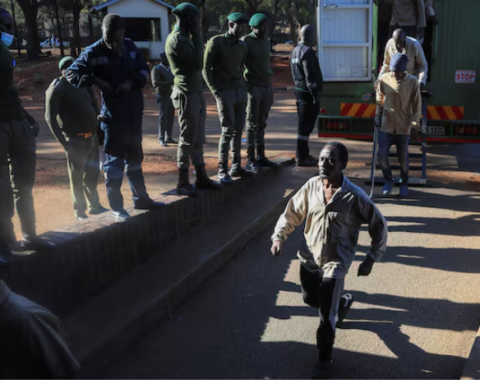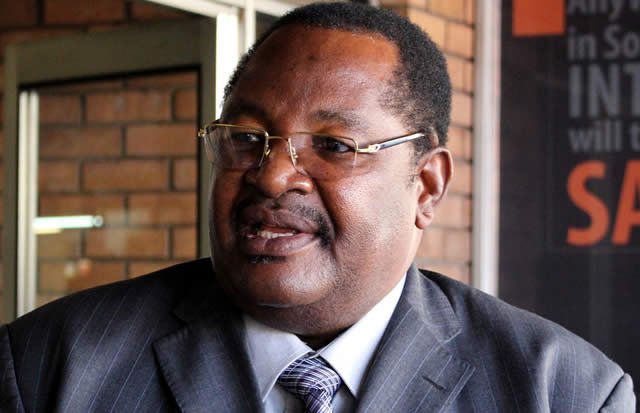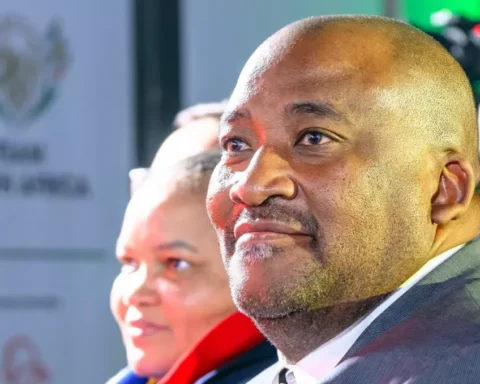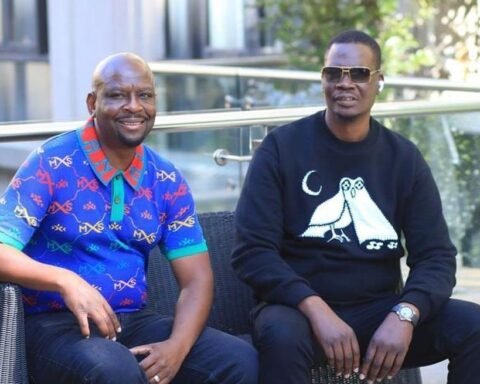Harare – On Saturday, Morgan Tsvangirai’s MDC party signed a pact with six other political parties to contest next year’s elections as a united front.
Will this be enough to defeat President Robert Mugabe and his Zanu-PF party?
Here’s what you need to know about the alliance.
Who’s in it?
This was pretty much a reunion of some of Morgan Tsvangirai’s former allies, like Welshman Ncube, who broke away in 2005 and set up his own faction of the MDC; and former finance minister Tendai Biti, who quit Tsvangirai’s party in 2014 to form the People’s Democratic Party.
There are other lesser-known political players who signed up, like Jacob Ngarivhume of the Transform Zimbabwe party and Aggripa Mutambara, a former army officer who is now the president of the Zimbabwe People First party. In all, seven parties signed the pact on Saturday.
Was it a surprise to see Biti there?
Yes, it was. On Saturday there were reports that he wouldn’t join the alliance. Local press reports claimed he was unhappy with the number of council and parliamentary seats reserved for his party’s candidates under the alliance. But on Saturday afternoon, at the Zimbabwe Grounds, he said that the democratic struggle had been restored to its “factory settings”. He was a founding member of the MDC, as was Welshman Ncube.
Who’s not in it?
Conspicuous by her absence was Joice Mujuru, the former vice president, who signed a MOU with Tsvangirai in April to work together and field a single presidential candidate. Her absence could weaken the alliance, because she’s a respected political figure who’s thought to command support in some perceived ruling party strongholds. It’s understood she’s uncomfortable with Tsvangirai as leader of the alliance.
Will this alliance hold?
Opposition MDC MP Jessie Majome says that, in her opinion, the alliance represents “a radical shift in opposition politics”. She told News24: “Ours has been an insular kind of politics. Everybody digs in and stays in their own trenches. No reaching out… clearly we’ve been behind other fledgling democracies in Africa.” But she said a lot of work remains to be done in strengthening the bonds of the alliance and convincing sceptics, both within and outside it, to join up. There’s scepticism from other quarters. Well-known Zimbabwe publisher @TrevorNcube said on Twitter: “If @mrtsvangirai / @Welshman_Ncube had focused on big picture 15 years ago Zim opposition wouldn’t be here. Sad really.”
Does the alliance have any hope of defeating Zanu-PF?
In a tweet after the signing ceremony, Tsvangirai said “the only way to destroy a dictatorship is by uniting”.
But Dewa Mavhinga, the southern Africa director of Human Rights Watch says the alliance is not enough. “What we have is a heavily uneven electoral field tipped in favour of Mugabe and ZANU-PF,” he told News24.
“State institutions including the electoral management body, ZEC, are not independent. They’re militarised, they’re politicised, they’re partisan. And that’s the biggest problem.”
He added: “Achieving the required electoral reforms…would somewhat level the electoral field and remove the spectre of security forces from electoral affairs.”
